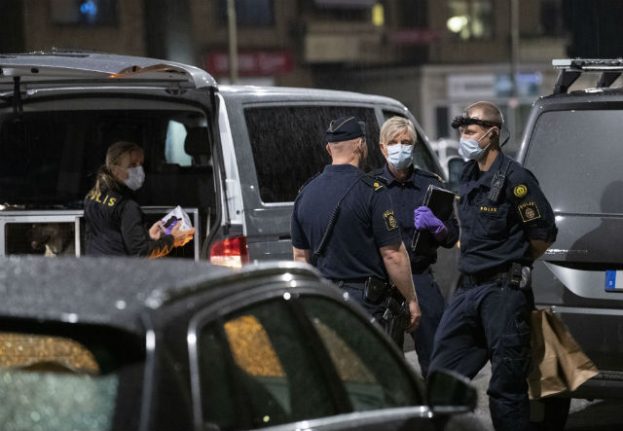“This could set new rules for the game,” warned one of a group of known gang criminals interviewed by the Kvällsposten newspaper, “…or it could be the beginning of something new: that there won't even be any rules in the future.”
The woman was the girlfriend of a 35-year-old who according to Sydsvenskan was given an eight-year jail sentence for involvement in the 2008 'Brøndby robbery', when a gang used a bulldozer to break into a safe deposit centre, taking 60 million Danish kroner. Two months previously, she had given birth to his child.
“The father of the child was not even active any more. I don't get it,” one criminal said. “In this world, you just don't intentionally go after someone's family.”
A woman who works as a drug dealer and hangs out with criminals told the newspaper that those she knew in criminal circles were upset by what had happened.
“It's a big 'no no' this. You don't shoot a woman and you really don't shoot a mother.”
The woman had got top marks at school and worked as a doctor.
Witnesses have told the media that the masked killers appeared to have deliberately targeted the woman in what they described as “an execution”. Police have said that they suspect her 35-year-old partner had been the intended victim.
It is not unusual for major heists to be followed by murders. George Francis, one of the gang who pulled off the 1983 Brinks Mat heist at London's Heathrow Airport, was murdered in 2003.
Two people suspected of involvement in the 2002 robbery of 44 million Swedish kronor of foreign currency at Arlanda airport have since been murdered.
Klara Hradilova Selin, a researcher at the Swedish National Council for Crime Prevention (Brå), confirmed that it was “extremely uncommon” for a woman to be shot in a gang conflict.
“With criminal conflicts the victim is almost never female,” she told The Local.
“If a woman is a victim of violence, it's almost always someone she knows, a partner or family member. When a woman dies, it's usually strangulation, and almost never shooting.”
“If a woman is shot, it's normally in the north of Sweden when someone uses a hunting rifle.”
Only one woman died in a shooting in Sweden last year, according to Brå statistics.
The attack was the first fatal shooting in Malmö since June.




 Please whitelist us to continue reading.
Please whitelist us to continue reading.
Hello there, I just wanted to point out that the headline for this article is quite alarming and misleading as to the content of the article to me as a native English speaker. Perhaps that was not the intent of the writer or editor, but the headline suggests that women and children are themselves taboo within this gangland of Malmö. There is a lot of misunderstanding right now all over the world directed toward foreigners and I think a more mild headline that represents the content of the actual article would better serve the public interest.